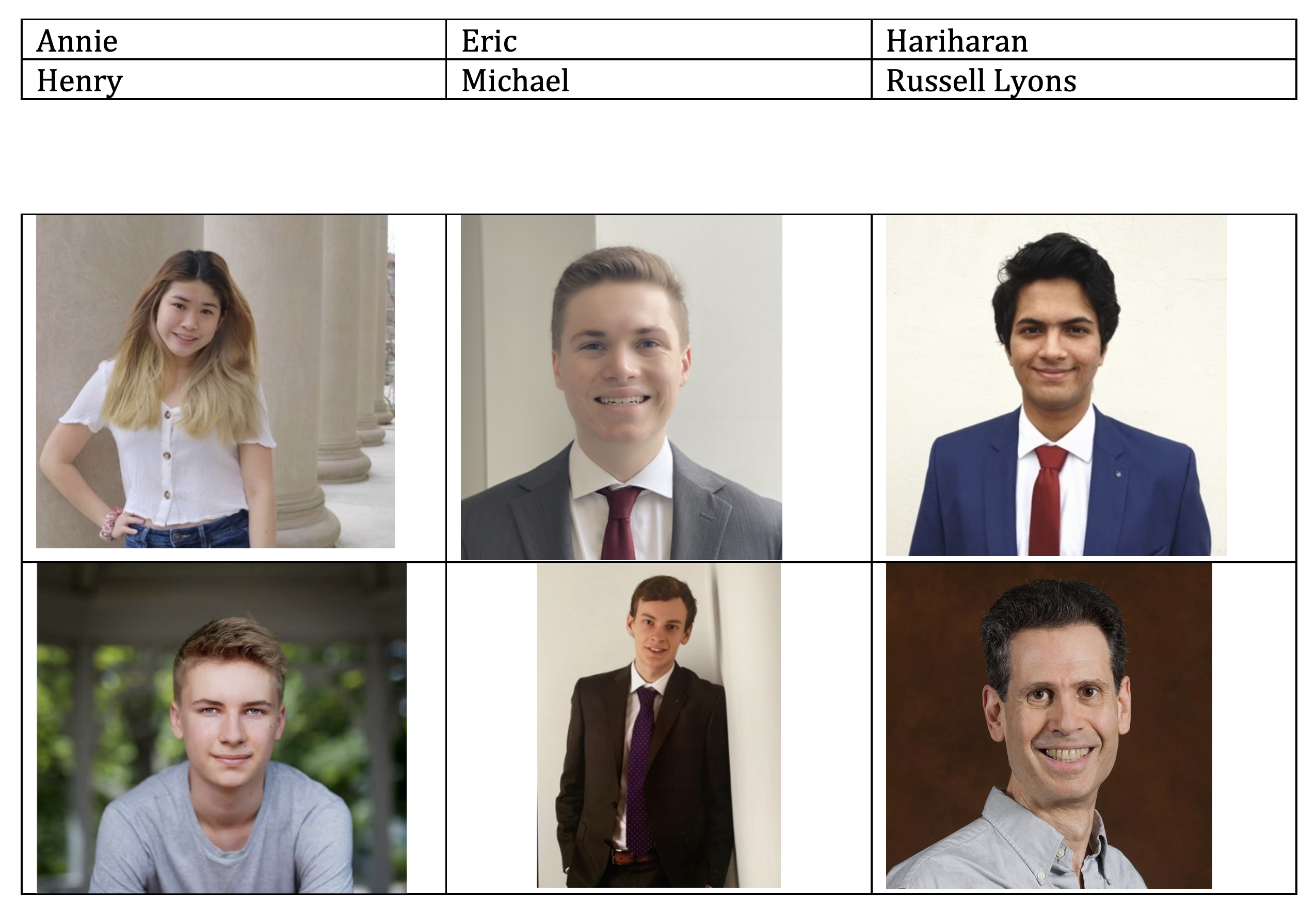Full Story
First place in the seventh annual Society of Actuaries (SOA) worldwide Student Research Case Study Challenge was won by a five-student team from Indiana University Bloomington. IUB also won last year; this is the first time that any school has won twice.
Each year, a case study is released with fictional data. Students worked over the course of nine weeks to respond to the open-ended study, representing realistic actuarial challenges. This year's challenge was to analyze the following scenario. A fictional country wants to compete in soccer at an international level, aiming for a positive economic effect on the country. A major part of the project is to form a soccer team, given statistics of (fictional) international players. The IU team used machine learning to form the team, training its algorithm on real-world data.
Fifty-nine teams from around the world submitted reports with their recommendations. After IU's team, the other five finalist teams came from the US (two), Australia, and China (two). IU Bloomington does not currently offer an actuarial science program, unlike many other competing schools. The team members represented the diverse talents of IUB students. Actuary Club President Eric Herbst organized the team; he is a junior finance and business analytics major from Zionsville, IN. Eric was also on the winning team last year. The rest of the team consisted of senior computer science major Henry Bobeck, also from Zionsville, sophomore finance major Michael Dineen from Glenview, IL, junior mathematics and economics major Hariharan PV from Bangalore, India, and junior economics and psychology major Annie Renholzberger from Indianapolis, IN.
The team was mentored by IU Mathematics faculty member Russell Lyons, who is the department's James H. Rudy Professor. “As always, this year's case study was very challenging,” said Prof. Lyons. “Despite other demands on their time, our team worked hard with a great degree of independence. Once they advanced to the final six, they needed to prepare a presentation and answer questions from the judges—during IU's finals week! I was extremely impressed with both their written report and their oral presentation.” IU's winning team members will receive $500 from the SOA, while the Mathematics Department will receive $5000 for its Actuary Club.
Team members agreed with Michael's feeling that “Having team members with different academic backgrounds was extremely beneficial and in my opinion one of the major reasons we performed so well.”
How did they come up with their creative idea to use machine learning? Henry explained, “We knew we had a huge amount of data to make sense of, and we knew we had to find some way to easily compare different players' ability based on that data.” The difficulty was that the given fictional data had too many confounding factors. However, once the team realized they could use publicly-available FIFA ratings, they realized that machine learning could solve their problem.
How could they estimate the economic effects? Annie said, “When I exercise, I like to listen to podcasts. So when I was told about this case study, I recalled a podcast that I listened to that talked about the economic implications of hosting the Olympics.”
What was it like to win? Hari reported that while working on the challenge, “we were all aware that IU was the reigning winner of the competition. That's definitely something that pushed me to do my best work. When we were announced as the winners this year, it was a matter of great pride and honor as it's the first time I have represented my university.” Eric said, “It feels great to win again and gives me a lot of confidence that we all can succeed in the field even without being an actuarial science major.”
All team members learned a lot from the experience. For example, Hari said, “This experience helped me manage my time a lot better. In particular, I recall the week of the proposal due date as one of the most hectic weeks of the semester in terms of college deadlines. In hindsight, I'm glad I went through that frantic week as it taught me valuable time-management skills that I can utilize in the future. Another key takeaway for me is the ability to break down complex concepts and explain them in layman's terms, especially difficult techniques such as the neural network and how we chose to implement it.”
The team has a podcast. 

 The College of Arts
The College of Arts